
Hesperian Dreams
Hesperian Dreams, Birth of a Notion Instalation 8
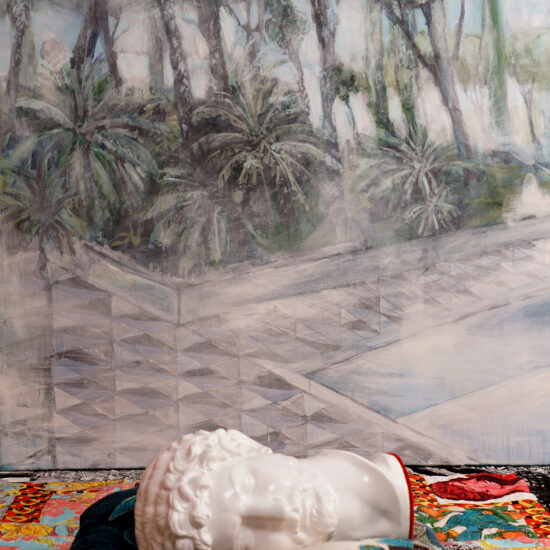
Hesperian Dreams, Birth of a Notion Instalation 6
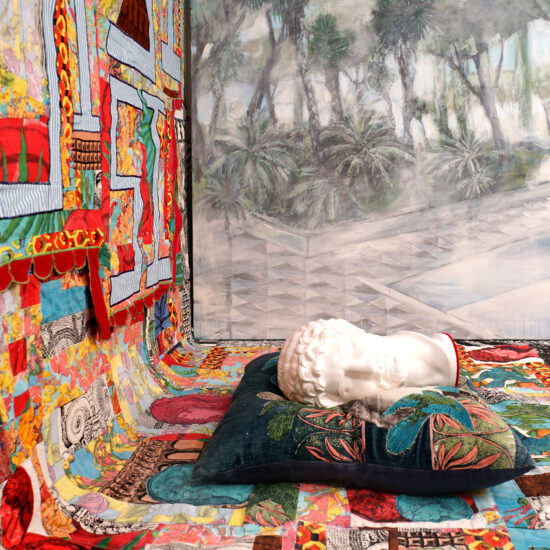
Hesperian Dreams, Birth of a Notion Instalation 4
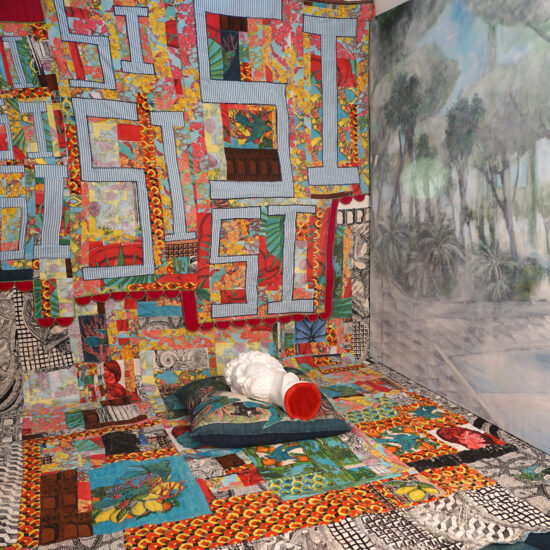
Hesperian Dreams, Birth of a Notion Instalation 5

Hesperian dreams acolyte My heart belongs to daddy

Hesperian dreams The Acolyte assemblage detail 2

Hesperian dreams The Acolyte assemblage detail 3
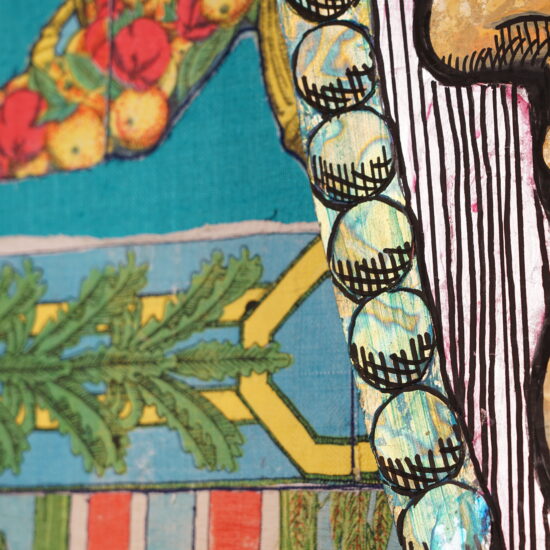
Hesperian dreams The Acolyte
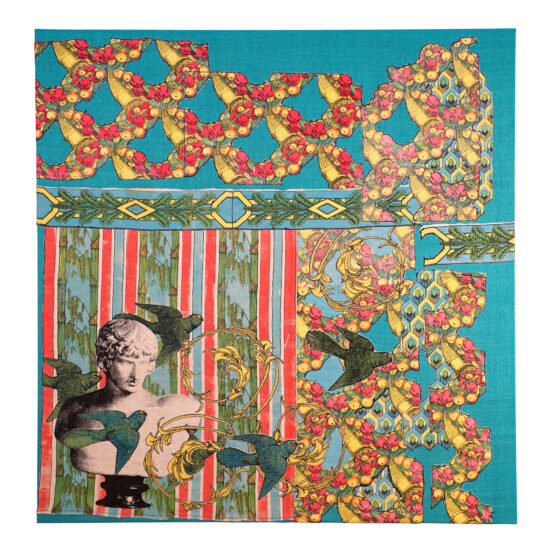
Hesperian dreams The Acolyte assemblage
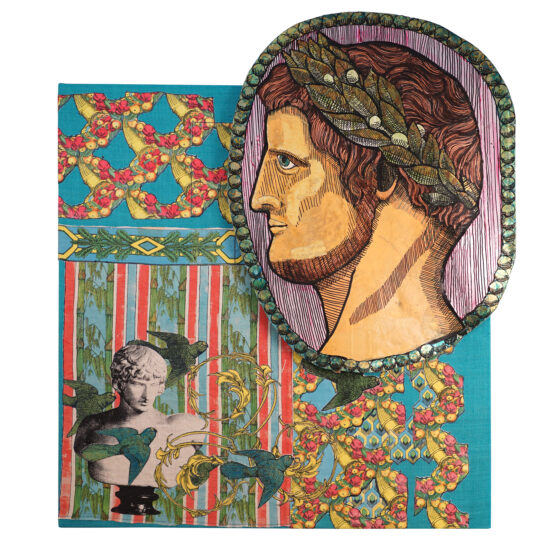
Hesperian dreams Descendente delle barche

Hesperian dreams Descendente delle barche side view

Hesperian Dreams Ninfeo, detail 2

Hesperian Dreams Ninfeo

Ninfeo

Hesperian dreams, Didone, (Nonna ninna nanna)

Hesperian dreams Familiar Constellation (il figlio) detail 1

Hesperian dreams Familiar Constellation (il figlio) detail 2
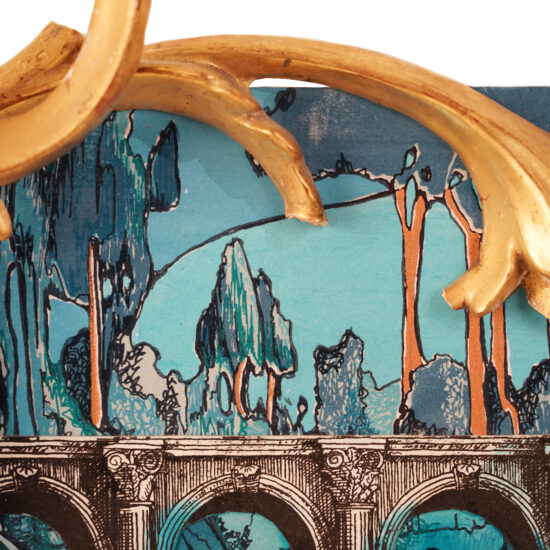
Hesperian dreams Familiar Constellation (il figlio) detail 5
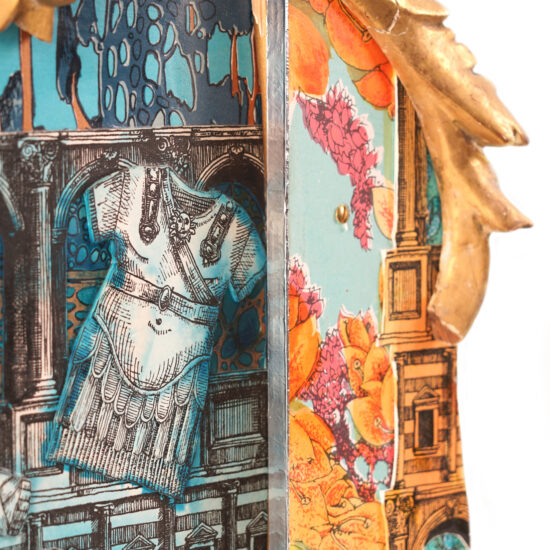
Hesperian dreams Familiar Constellation (il figlio)

Hesperian dreams Familiar Constellation (la figlia) detail 3

Hesperian dreams Familiar Constellation (la figlia) detail 1

Hesperian dreams Familiar Constellation (la figlia) detail 2

Hesperian dreams Familiar Constellation (la figlia)

Hesperian dreams Familiar Constellation (genitore) detail 5

Hesperian dreams Familiar Constellation (genitore) detail 1

Hesperian dreams Familiar Constellation (genitore) detail 3

Hesperian dreams Familiar Constellation (genitore)

familiar contalations together

Perpetua detail 7
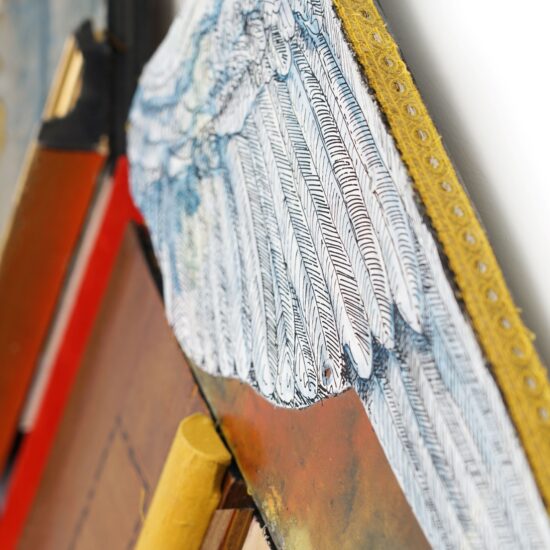
Perpetua detail 1

Perpetua detail 2

Perpetua detail 6

Perpetua cut

Perpetua, Le zitellel, detail 2

Perpetua, Le zitelle

Perpetua, La zitella 2

Perpetua, La zitella 2, detail 4

Perpetua, La zitella 2, detail 3

Perpetua, La zitella 1

Perpetua, La zitella 1, detail 5

Perpetua, La zitella 1, detail 3

Perpetua, la frociaggine

Perpetua, la frociaggine, detail frusta sinistra

Perpetua, la frociaggine, detail destra

spoglia (perpetua)

spoglia (perpetua) retro
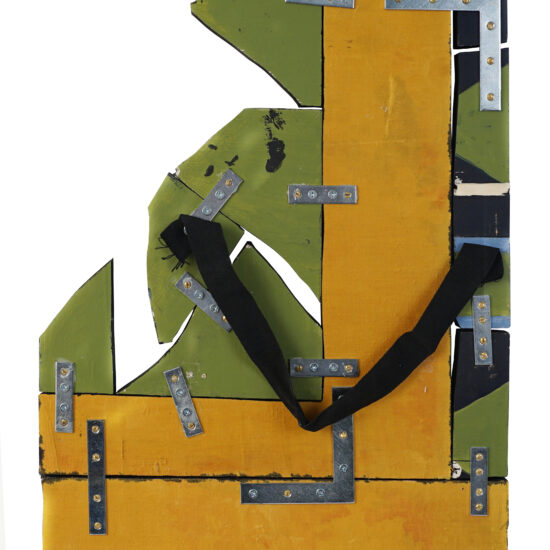
Spoglia, gli coniuge

Spoglia, gli coniuge detail 2

spoglia (ti voglia) 3

spoglia (ti voglia) 3 retro
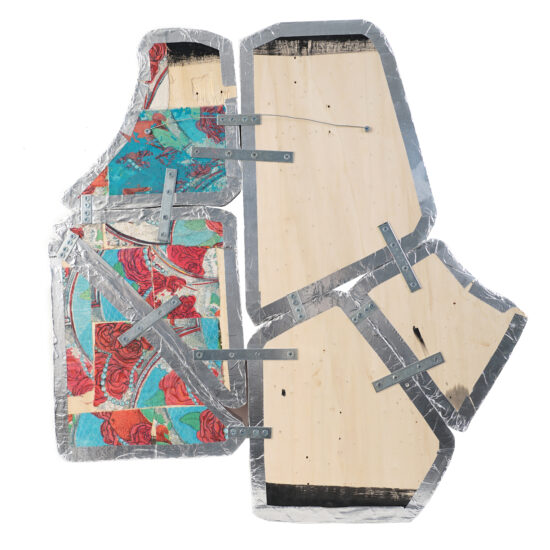
spoglia (ti voglia) 3 retro detail
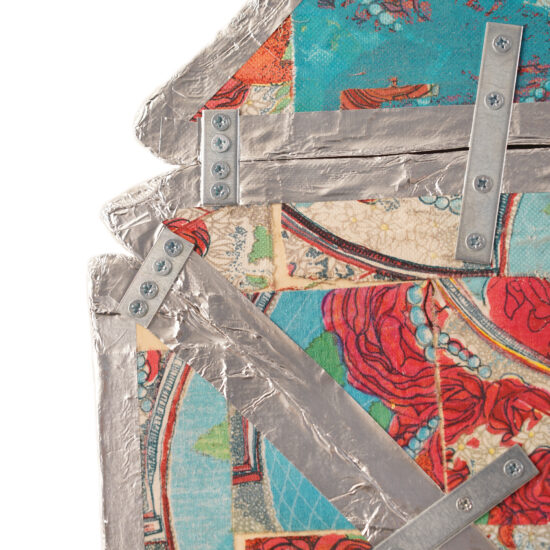
spoglia (ti voglia) 2

spoglia (ti voglia) 2 retro

spoglia (ti voglia) 2 retro detail

spoglia (ti voglia) 1

spoglia (ti voglia) 1 retro

spoglia (ti voglia) 1 retro detail

spoglia (ti voglia)

spoglia cartouche
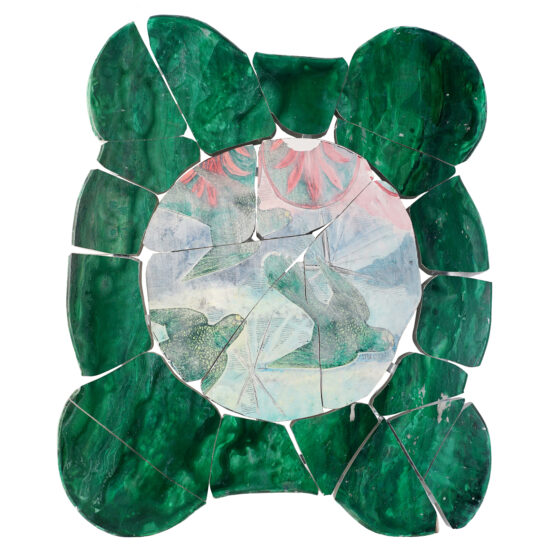
Spoglia cartouche detail retro whole
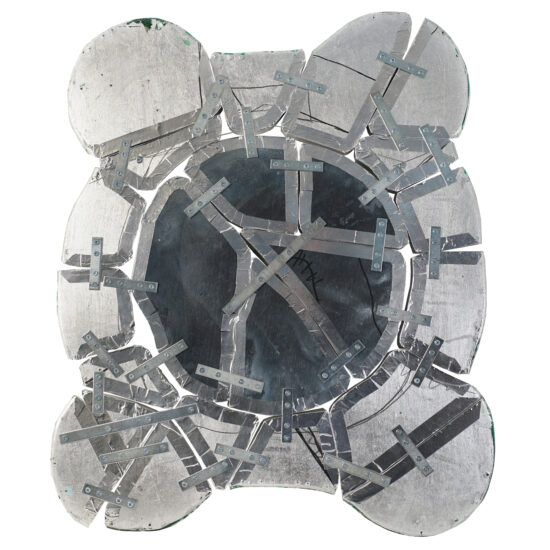
Spoglia cartouche detail retro detail horozontal
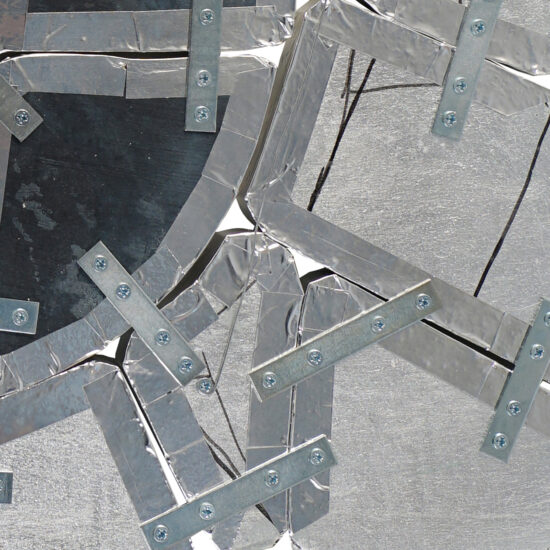
Spoglia cartouche detail 3
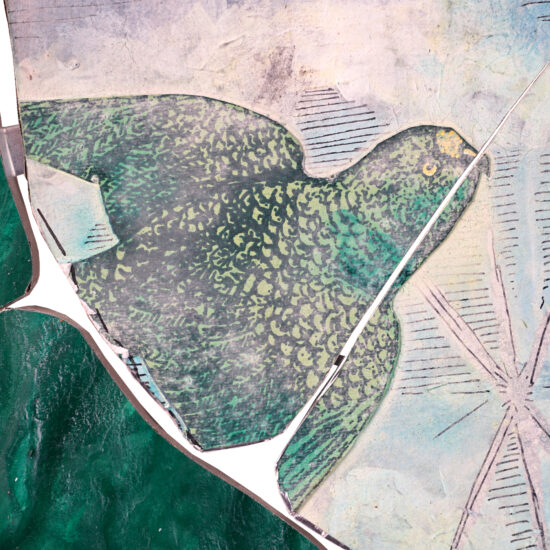
Spoglia cartouche detail 2
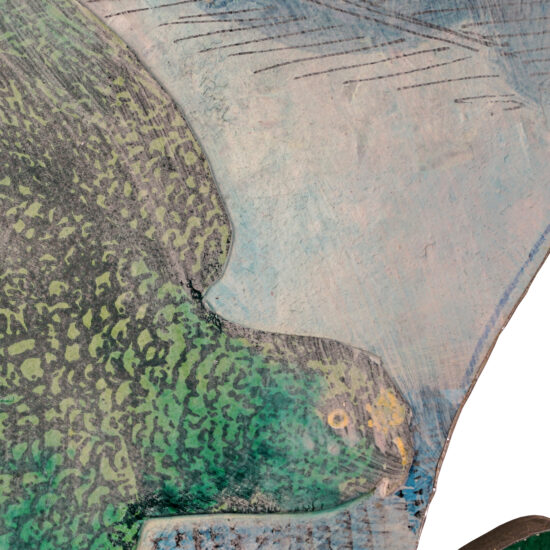
Spoglia cartouche detail1
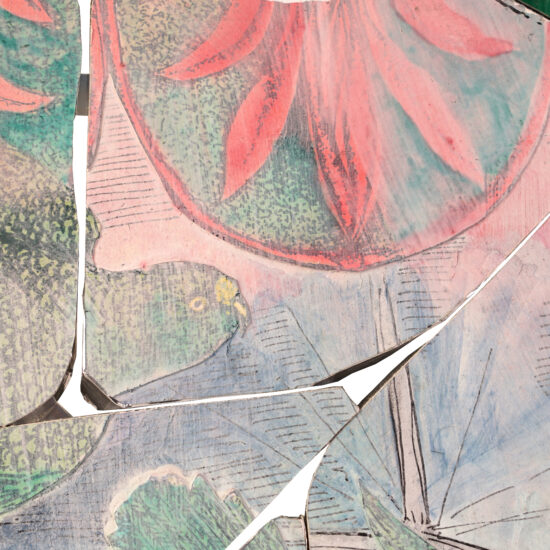
Spoglia, WIP 1

Spoglia, WIP 2

Spoglia, WIP 3
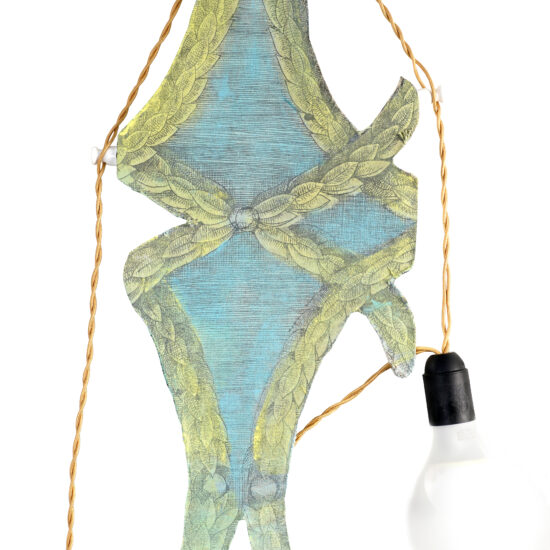
Hesperian Dreams
“Rome wasn’t built in a day” encapsulates the complex interplay of cultural appropriation, interpretation, appearance, and façade. Our surroundings often reflect derivative scenography that tells decontextualized histories. Artistic and socioeconomic factors serve as the main progenitors of new forms and ideas, with visceral interactions in civic spaces fostering competition and augmentation.The finest artisans, employed by the wealthiest patrons, created cannons that trickled down through the various strata of society, adapting and changing with each social circle. In the provinces, we see a proliferation of googly-eyed frescoes—evidence that without a connection to originating culture, art can either go unquestioned, be invented, or be denied altogether, robbing us of meaning while offering something inferior in return. A world reminiscent of Pushkin villages, where appearance triumphs over substance, a society of conquest can only free itself from its history by denying it entirely. The push for a global culture often marginalizes the weakest, raising the question: if you have no connection to the people who built your space, will you protect it or cherish it? This idea of history has merit, especially when considering the ongoing rebuilding and restoration of historic civic spaces. We witness “Frankenstein temples,” anachronistic attempts to recapture former glory. This has been happening throughout history, layering stucco over walls made from waste—no one sees the difference as it’s all smoothed over and rendered into decorative patterns, frescoes, and faux marble. In the pursuit of new grandeur, the remnants of the past have often been repurposed, ground into lime to support the very structures that redefine the landscape. This act underscores our reverence for fabrication: why do we emphasize artifice so heavily? What is concocted, and what is tangible? How do we collectively differentiate between the two? Is it subjective? This plurality is crucial to culture and art, yet does it inevitably lead to the banality of specialization?